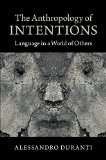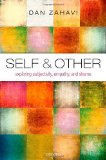January 30, 2015

Digital Destiny: How the New Age of Data Will Transform the Way We Work, Live, and Communicate by Shawn DuBravac (Regnery Publishing, 2015)
(kindle ed.), (amazon.co.uk), (UK kindle ed.)
Book description from the publisher:
A New York Times Bestseller!
Our world is about to change.
In Digital Destiny: How the New Age of Data Will Change the Way We Live, Work, and Communicate, Shawn DuBravac, chief economist and senior director of research at the Consumer Electronics Association (CEA), argues that the groundswell of digital ownership unfolding in our lives signals the beginning of a new era for humanity. Beyond just hardware acquisition, the next decade will be defined by an all-digital lifestyle and the “Internet of Everything”—where everything, from the dishwasher to the wristwatch, is not only online, but acquiring, analyzing, and utilizing the data that surrounds us. But what does this mean in practice?
It means that some of mankind’s most pressing problems, such as hunger, disease, and security, will finally have a solution. It means that the rise of driverless cars could save thousands of American lives each year, and perhaps hundreds of thousands more around the planet. It means a departure from millennia-old practices, such as the need for urban centers. It means that massive inefficiencies, such as the supply chains in Africa allowing food to rot before it can be fed to the hungry, can be overcome. It means that individuals will have more freedom in action, work, health, and pursuits than ever before.
Google Books preview:
See also: Author’s website
Comments (0)
- culture,new books
January 27, 2015

The Brain’s Way of Healing: Remarkable Discoveries and Recoveries from the Frontiers of Neuroplasticity by Norman Doidge (Viking, 2015)
(kindle ed.), (amazon.co.uk), (UK kindle ed.)
Book description from the publisher:
The New York Times bestselling author of The Brain That Changes Itself presents astounding advances in the treatment of brain injury and illness
In The Brain That Changes Itself, Norman Doidge described the most important breakthrough in our understanding of the brain in four hundred years: the discovery that the brain can change its own structure and function in response to mental experience—what we call neuroplasticity.
His revolutionary new book shows, for the first time, how the amazing process of neuroplastic healing really works. It describes natural, non-invasive avenues into the brain provided by the forms of energy around us—light, sound, vibration, movement—which pass through our senses and our bodies to awaken the brain’s own healing capacities without producing unpleasant side effects. Doidge explores cases where patients alleviated years of chronic pain or recovered from debilitating strokes or accidents; children on the autistic spectrum or with learning disorders normalizing; symptoms of multiple sclerosis, Parkinson’s disease, and cerebral palsy radically improved, and other near-miracle recoveries. And we learn how to vastly reduce the risk of dementia with simple approaches anyone can use.
For centuries it was believed that the brain’s complexity prevented recovery from damage or disease. The Brain’s Way of Healing shows that this very sophistication is the source of a unique kind of healing. As he did so lucidly in The Brain That Changes Itself, Doidge uses stories to present cutting-edge science with practical real-world applications, and principles that everyone can apply to improve their brain’s performance and health.
Google Books preview:
See also: Author’s website
Comments (0)
- cognitive science,new books
January 21, 2015

Murder in the Courtroom: The Cognitive Neuroscience of Violence by Brigitte Vallabhajosula (Oxford University Press, 2015)
(amazon.co.uk)
Book description from the publisher:
Answers to many legal questions often depend on our understanding of the relationship between the human brain and behavior. While there is no evidence to suggest that violence is the sole result of cognitive impairment, research does suggest that frontal lobe impairment in particular may contribute to the etiology of violent behavior.
Murder in the Courtroom presents a comprehensive and detailed analysis of issues most relevant to answering questions regarding the link between cognitive functioning and violence. It is the first book to focus exclusively on the etiology and assessment of cognitive impairment in the context of violent behavior and the challenges courts face in determining the reliability of neuroscience evidence; provide objective discussions of currently available neuropsychological tests and neuroimaging techniques, and their strengths and limitations; provide a methodology for the assessment of cognitive dysfunction in the context of violent behavior that is likely to withstand a Daubert challenge; and include detailed discussions of criminal cases to illustrate important points. Clinical and forensic psychologists and psychiatrists, cognitive neuroscientists, and legal professionals will be able to use this book to further their understanding of the relationship between brain function and extreme violence.
Google Books preview:
Comments (0)
- cognitive science,new books,psychology
January 18, 2015

The Anthropology of Intentions: Language in a World of Others by Alessandro Duranti (Cambridge University Press, 2015)
(kindle ed.), (amazon.co.uk), (UK kindle ed.)
Book description from the publisher:
How and to what extent do people take into account the intentions of others? Alessandro Duranti sets out to answer this question, showing that the role of intentions in human interaction is variable across cultures and contexts. Through careful analysis of data collected over three decades in US and Pacific societies, Duranti demonstrates that, in some communities, social actors avoid intentional discourse, focusing on the consequences of actions rather than on their alleged original goals. In other cases, he argues, people do speculate about their own intentions or guess the intentions of others, including in some societies where it was previously assumed they avoid doing so. To account for such variation, Duranti proposes an ‘intentional continuum’, a concept that draws from phenomenology and the detailed analysis of face-to-face interaction. A combination of new essays and classic re-evaluations, the book draws together findings from anthropology, linguistics and philosophy to offer a penetrating account of the role of intentions in defining human action.
Google Book preview:
Comments (0)
- culture,language,new books
January 15, 2015

Self and Other: Exploring Subjectivity, Empathy, and Shame by Dan Zahavi (Oxford University Press, 2015)
(kindle ed.), (amazon.co.uk), (UK kindle ed.)
Book description from the publisher:
Can you be a self on your own or only together with others? Is selfhood a built-in feature of experience or rather socially constructed? How do we at all come to understand others? Does empathy amount to and allow for a distinct experiential acquaintance with others, and if so, what does that tell us about the nature of selfhood and social cognition? Does a strong emphasis on the first-personal character of consciousness prohibit a satisfactory account of intersubjectivity or is the former rather a necessary requirement for the latter?
Engaging with debates and findings in classical phenomenology, in philosophy of mind and in various empirical disciplines, Dan Zahavi’s new book Self and Other offers answers to these questions. Discussing such diverse topics as self-consciousness, phenomenal externalism, mindless coping, mirror self-recognition, autism, theory of mind, embodied simulation, joint attention, shame, time-consciousness, embodiment, narrativity, self-disorders, expressivity and Buddhist no-self accounts, Zahavi argues that any theory of consciousness that wishes to take the subjective dimension of our experiential life serious must endorse a minimalist notion of self. At the same time, however, he also contends that an adequate account of the self has to recognize its multifaceted character, and that various complementary accounts must be integrated, if we are to do justice to its complexity. Thus, while arguing that the most fundamental level of selfhood is not socially constructed and not constitutively dependent upon others, Zahavi also acknowledges that there are dimensions of the self and types of self-experience that are other-mediated. The final part of the book exemplifies this claim through a close analysis of shame.
Google Books preview:
Comments (0)
- consciousness,new books,self







